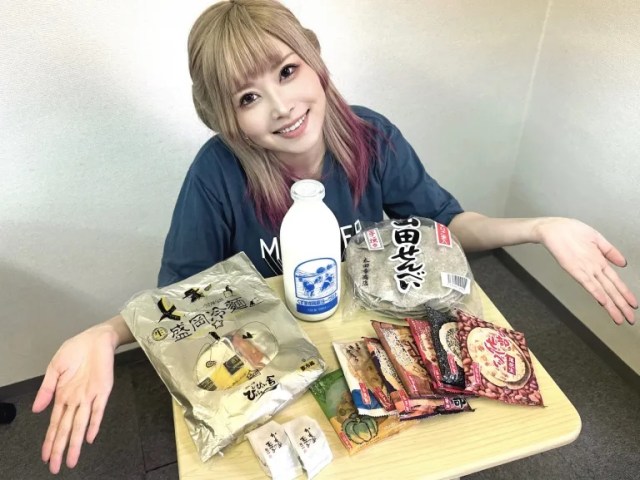
An Iwate native helps us with our shopping at the Ginza specialty store.
Every corner of Japan has its own unique culinary culture, with certain foods, ingredients and dishes they do better than anywhere else. While this gives foodies added incentive to travel around to different parts of the country, in Tokyo you can get a taste of these special regional tastes at “antenna shops,” retail stores that specialize in items from a particular prefecture.
Recently, our Japanese-language reporter Ikuna Kamezawa stopped by Iwate Ginga Plaza, the Iwate Prefecture specialty shop located in Tokyo’s Ginza neighborhood and shown in the photo above. Ikuna didn’t go alone, though. She went with a friend who was born and raised in Iwate, and asked for five recommendations as to the very best things to buy to eat or drink!
Let’s take a look at what Ikuna’s friend recomm-
▼ But then, suddenly, ice cream!
Actually, even before Ikuna’s friend could reel off their first recommendation, Ikuna spotted the soft serve ice cream stand inside Iwate Ginga Plaza, and there was no way she wasn’t going to try it. While Hokkaido is the prefecture most commonly associated with dairy products, Iwate, which is in the northeastern Tohoku region, has a lot of dairies too, and this ice cream, made with Iwate milk, was rich and delicious.
OK, now let’s get to our list of the top five things to buy at the store, as recommended by an Iwate native.
5. Kamome no Tamago (475 yen [US$3.40] for pack of 4)
Kamome no Tamago are a type of manju (sweet dumpling) with a white sweet bean paste core inside a bite-sized round sponge cake coated in white chocolate. Because the white sweet bean paste has a yellow tinge to it, the dumplings look like little eggs, and in fact Kamome no Tamago translates to “seagull eggs.”
Kamome no Tamago have been popular for over 60 years and are somewhat well known already, so while Ikuna was glad for the chance to pick up a pack and have our boss pay for it, she had to confess to her friend that she was hoping for a bit more of a hidden-gem recommendation. However, Ikuna’s friend said that, among sweets fans in Iwate, there’s a sizeable group that insists Kamome no Tamago has gotten significantly even more delicious in the last 10 years or so. Ikuna doesn’t get to eat them frequently enough to confirm that one way or another, but she can say that the Kamome no Tamago you can buy today taste great.
4. Iwateya Nanbu Senbei (624 yen for pack of 8 types)
Senbei are most commonly called “rice crackers” in English, but Nanbu senbei are actually made with wheat instead. Northeastern Japan sometimes gets hit by harshly cold weather patterns that, back in the old days, could devastate the rice crop, which led locals to substitute wheat flour for rice when making senbei. The Aomori Prefeture town of Nanbu is especially famous for senbei, but with Nanbu being on the Aomori/Iwate border, the practice of making/eating these special senbei eventually spreads south into Iwate as well.
Ikuna’s friend recommended this pack in particular because it comes with eight different flavors, including apple, kabocha (Japanese pumpkin), sesame, and soy sauce, and Ikuna found the squid flavor to be especially tasty.
3. Pyonpronsha Reimen (972 yen)
Going from snacks to something more substantial, we come to the Pyonpyonsha brand of reimen, or cold noodles. After boiling the noodles for four minutes, you place them in a bowl of cold water, then add in the broth base and kimchi that are included in the set.
With Tokyo still experiencing midsummer levels of heat, Ikuna found this combination of spicy flavors and cold temperatures “ridiculously delicious,” and she was especially captivated by the extra-firm chewy texture of the noodles.
2. Otayuki Shoten-brand Yamada Senbei (432 yen for a pack of 5)
This entry comes with an asterisk, so to speak, because it’s not precisely what Ikuna’s friend recommended. Really, this spot was supposed to go to Otayuki Shoten’s Nama Yamada Senbei, a type of unbaked sesame-flavor rice cracker that’s been popular since the Edo Period, which ended in 1868. Unfortunately, Iwate Ginga Plaza didn’t have the nama/unbaked variety in stock on Ikuna’s visit, so she picked up a pack of the regular, crispier senbei instead.
On the plus side, this is a very nice senbei with plenty of black sesame flavor, but Ikuna can’t help feeling a sense of regret that she still hasn’t experienced what this snack is truly capable of.
1. Kuzumaki Kogen Yogurt (860 yen)
So remember earlier how we said Iwate’s ice cream was great because of the prefecture’s dairies? Well, that means they’ve got the bovine necessities for great yogurt too!
As indicated by the milk bottle-style container, this is a drinkable yogurt. Ikuna, as luck would have it, is a big drinkable yogurt fan, regularly picking up packs of it at her local convenience stores. Kuzumaki Kogen’s, though, is a step above what she’s used to, with a smooth but substantial mouthfeel and great flavor, close to milk but with a touch of extra tartness.
This is just a tiny sampling of the selection at Iwate Ginga Plaza, but now that we’ve got a few things we want to go back and get more of, we’re looking forward to finding more edible Iwate treasures on our next visit too.
Shop information
Iwate Ginga Plaza / いわて銀河プラザ
Address: Tokyo-to, Chuo-ku, Ginza 5-15-1
東京都中央区銀座5丁目15-1
Open 10:30 a.m.-7 p.m.
Website
Photos ©SoraNews24
● Want to hear about SoraNews24’s latest articles as soon as they’re published? Follow us on Facebook and Twitter!
[ Read in Japanese ]

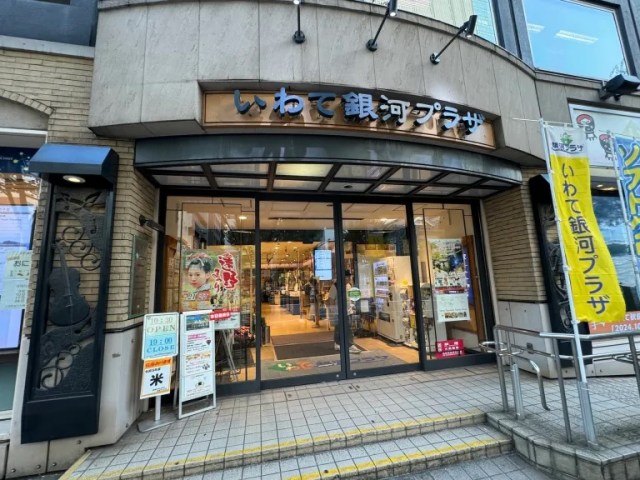
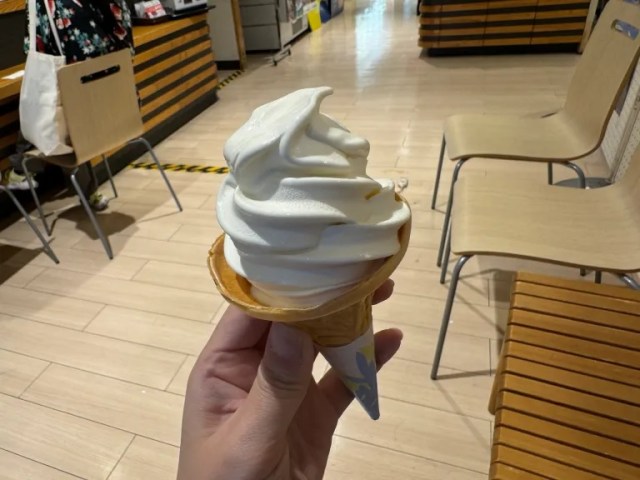
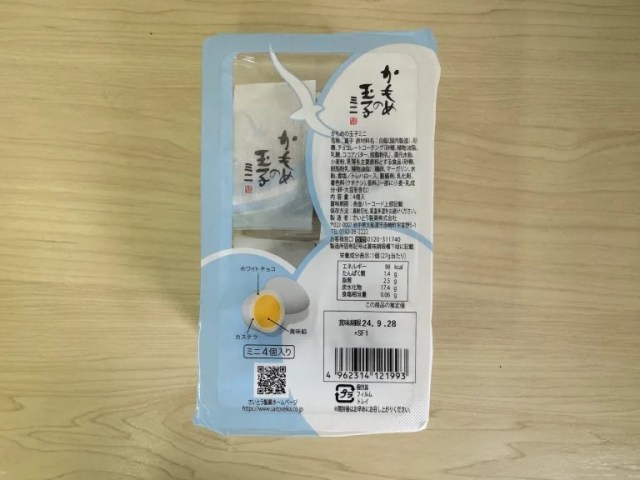
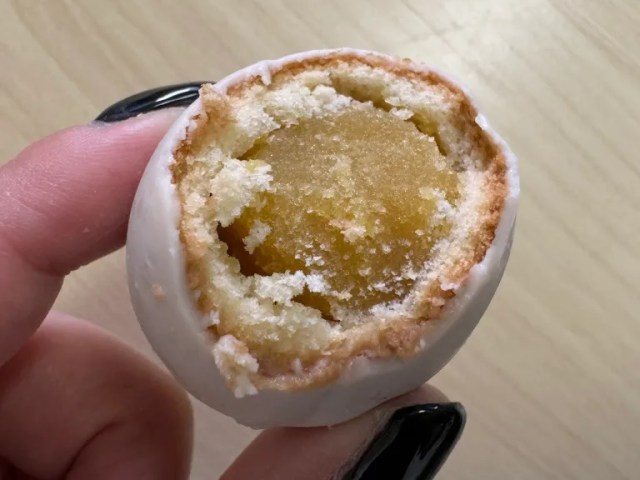
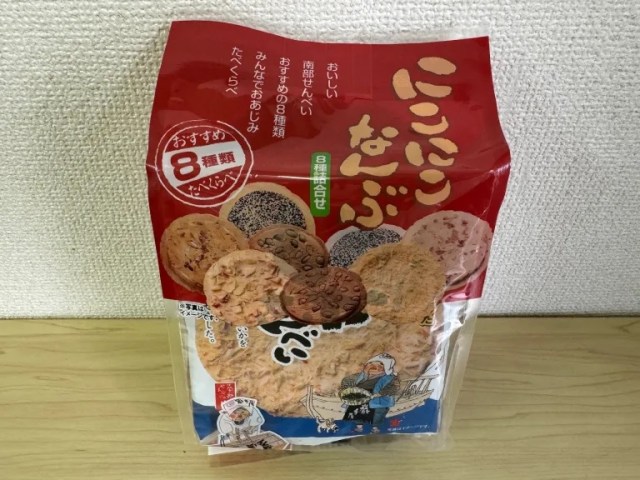
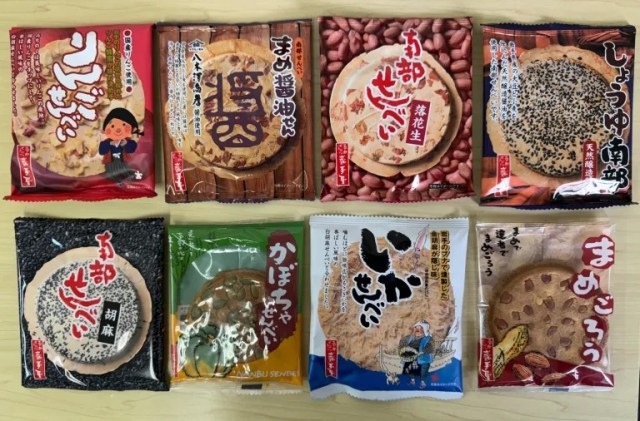
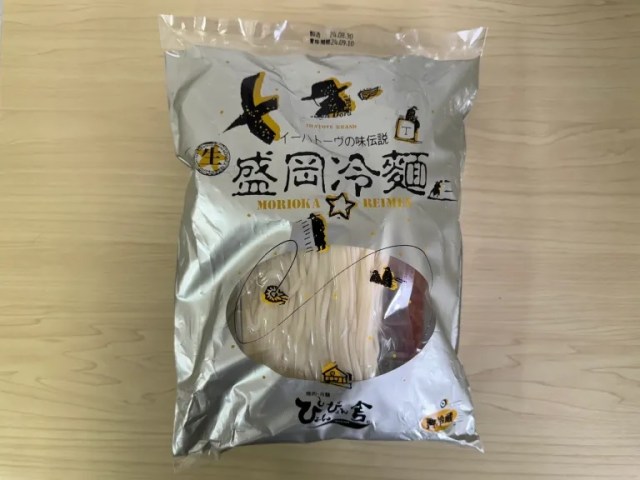
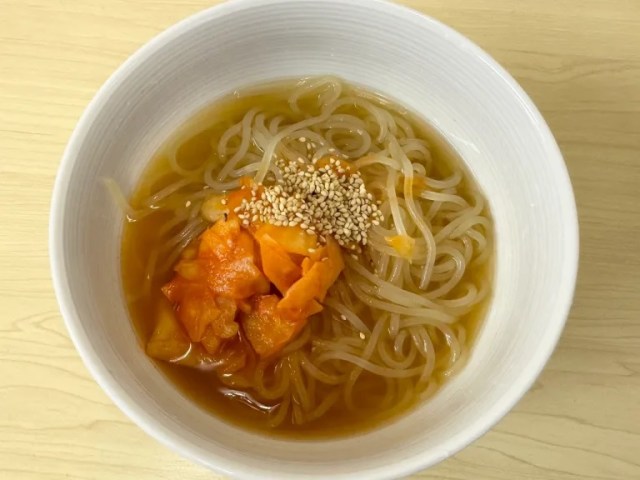

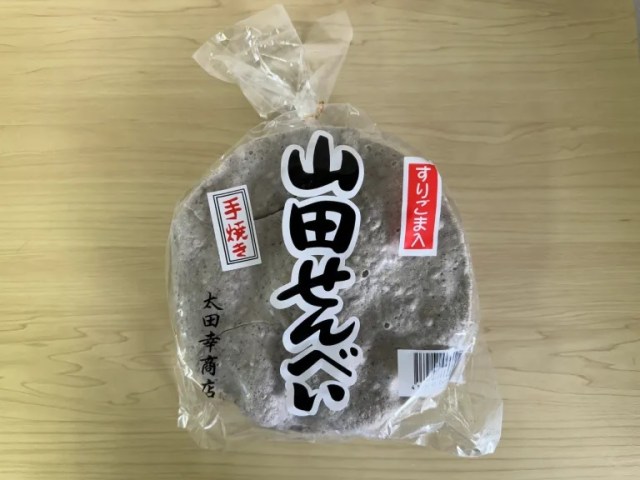
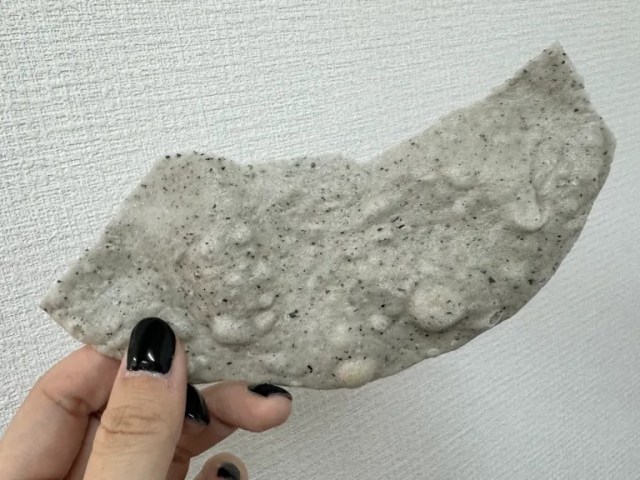
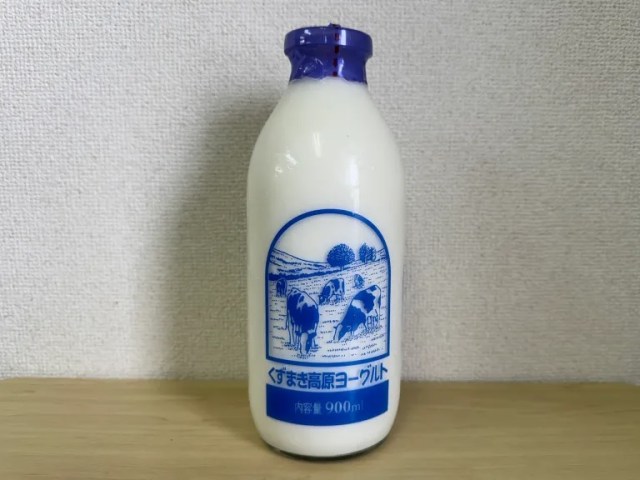

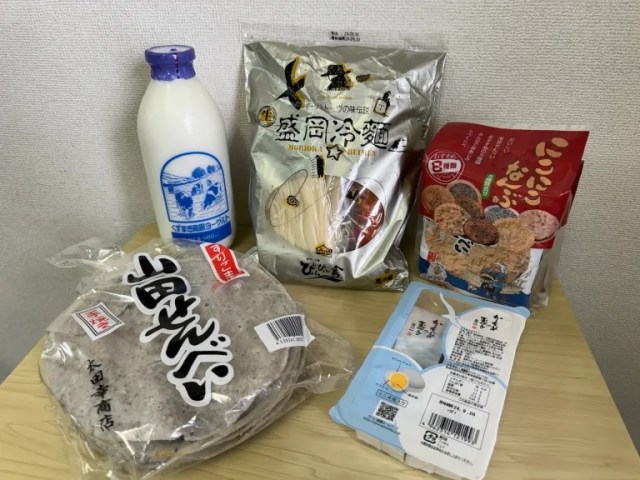
 Sake bread and cakes, using one of Japan’s best brews, can only be bought at one Tokyo bakery
Sake bread and cakes, using one of Japan’s best brews, can only be bought at one Tokyo bakery Potama serves up epic rice balls like no other, and there’s only one store in Tokyo
Potama serves up epic rice balls like no other, and there’s only one store in Tokyo Starbucks Japan releases first-ever Hinamatsuri Girls’ Day Frappuccino
Starbucks Japan releases first-ever Hinamatsuri Girls’ Day Frappuccino Ramen for 99 yen?!? Best value-for-money noodles found at unlikely chain in Japan
Ramen for 99 yen?!? Best value-for-money noodles found at unlikely chain in Japan Beautiful blue apple jam is taking the Japanese internet’s breath away!
Beautiful blue apple jam is taking the Japanese internet’s breath away! Japan’s new Mister Donut matcha donuts have so much green tea flavor one has to use the hole
Japan’s new Mister Donut matcha donuts have so much green tea flavor one has to use the hole Sailor Moon and team to get new adversaries in “Black Moon Clan”
Sailor Moon and team to get new adversaries in “Black Moon Clan” These new Gamecube-style Wii U controllers are gorgeous, (almost) exactly what we wanted【E3】
These new Gamecube-style Wii U controllers are gorgeous, (almost) exactly what we wanted【E3】 The best Hobonichi diaries, covers and stationery for 2026
The best Hobonichi diaries, covers and stationery for 2026 Japan Extreme Budget Travel! A trip from Tokyo to Izumo for just 30,000 yen [Part 2]
Japan Extreme Budget Travel! A trip from Tokyo to Izumo for just 30,000 yen [Part 2] Eight surprising things to do in Northern Okinawa
Eight surprising things to do in Northern Okinawa Japanese restaurant chain serves Dragon Ball donuts and Senzu Beans this spring
Japanese restaurant chain serves Dragon Ball donuts and Senzu Beans this spring Highest Starbucks in Japan set to open this spring in the Tokyo sky
Highest Starbucks in Japan set to open this spring in the Tokyo sky Tokyo Skytree turns pink for the cherry blossom season
Tokyo Skytree turns pink for the cherry blossom season Japan Extreme Budget Travel! A trip from Tokyo to Izumo for just 30,000 yen [Part 1]
Japan Extreme Budget Travel! A trip from Tokyo to Izumo for just 30,000 yen [Part 1] Yakuzen ramen restaurant in Tokyo is very different to a yakuza ramen restaurant
Yakuzen ramen restaurant in Tokyo is very different to a yakuza ramen restaurant Japan has only one airport named after a samurai, so let’s check out Kochi Ryoma【Photos】
Japan has only one airport named after a samurai, so let’s check out Kochi Ryoma【Photos】 Japanese drugstore sells onigiri at pre-stupid era prices, but how do they compare to 7-Eleven?
Japanese drugstore sells onigiri at pre-stupid era prices, but how do they compare to 7-Eleven? Adorable Totoro acorn key holders come with a special guest hidden inside[Photos]
Adorable Totoro acorn key holders come with a special guest hidden inside[Photos] Japan’s newest Shinkansen has no seats…or passengers [Video]
Japan’s newest Shinkansen has no seats…or passengers [Video] Starbucks Japan releases new sakura goods and drinkware for cherry blossom season 2026
Starbucks Japan releases new sakura goods and drinkware for cherry blossom season 2026 Foreigners accounting for over 80 percent of off-course skiers needing rescue in Japan’s Hokkaido
Foreigners accounting for over 80 percent of off-course skiers needing rescue in Japan’s Hokkaido Super-salty pizza sends six kids to the hospital in Japan, linguistics blamed
Super-salty pizza sends six kids to the hospital in Japan, linguistics blamed Starbucks Japan unveils new sakura Frappuccino for cherry blossom season 2026
Starbucks Japan unveils new sakura Frappuccino for cherry blossom season 2026 Foreign tourists in Japan will get free Shinkansen tickets to promote regional tourism
Foreign tourists in Japan will get free Shinkansen tickets to promote regional tourism The 10 most annoying things foreign tourists do on Japanese trains, according to locals
The 10 most annoying things foreign tourists do on Japanese trains, according to locals Take a trip to Japan’s Dododo Land, the most irritating place on Earth
Take a trip to Japan’s Dododo Land, the most irritating place on Earth Naruto and Converse team up for new line of shinobi sneakers[Photos]
Naruto and Converse team up for new line of shinobi sneakers[Photos] Is China’s don’t-go-to-Japan warning affecting the lines at a popular Tokyo gyukatsu restaurant?
Is China’s don’t-go-to-Japan warning affecting the lines at a popular Tokyo gyukatsu restaurant? Survey asks foreign tourists what bothered them in Japan, more than half gave same answer
Survey asks foreign tourists what bothered them in Japan, more than half gave same answer Japan’s human washing machines will go on sale to general public, demos to be held in Tokyo
Japan’s human washing machines will go on sale to general public, demos to be held in Tokyo Starbucks Japan releases new drinkware and goods for Valentine’s Day
Starbucks Japan releases new drinkware and goods for Valentine’s Day We deeply regret going into this tunnel on our walk in the mountains of Japan
We deeply regret going into this tunnel on our walk in the mountains of Japan Studio Ghibli releases Kodama forest spirits from Princess Mononoke to light up your home
Studio Ghibli releases Kodama forest spirits from Princess Mononoke to light up your home Major Japanese hotel chain says reservations via overseas booking sites may not be valid
Major Japanese hotel chain says reservations via overseas booking sites may not be valid Put sesame oil in your coffee? Japanese maker says it’s the best way to start your day【Taste test】
Put sesame oil in your coffee? Japanese maker says it’s the best way to start your day【Taste test】 No more using real katana for tourism activities, Japan’s National Police Agency says
No more using real katana for tourism activities, Japan’s National Police Agency says